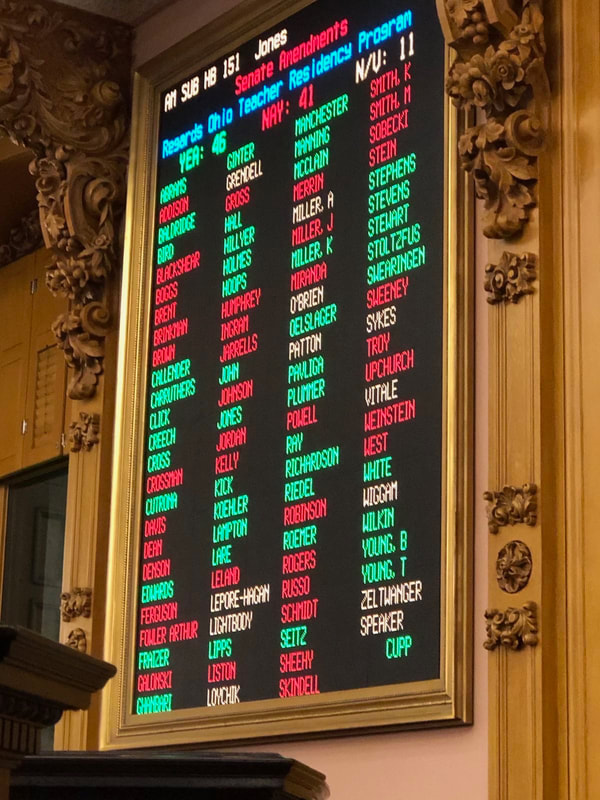Senate Bill 178, 134th General Assembly
UPDATE
In the final hours on the final scheduled day of legislative session for the year,
the Statehouse worked overtime trying to attach SB 178 as a 1,000+ page amendment to HB 151.
That effort failed. SB 178 did not pass as a standalone bill or as an amendment.
We fully expect to see the contents of SB 178 resurface in 2023 in the 135th General Assembly.
the Statehouse worked overtime trying to attach SB 178 as a 1,000+ page amendment to HB 151.
That effort failed. SB 178 did not pass as a standalone bill or as an amendment.
We fully expect to see the contents of SB 178 resurface in 2023 in the 135th General Assembly.
|
SPONSOR
Sen. Bill Reineke (R-Tiffin, Dist 26) TARGETS State Board of Education Department of Education Governor's Cabinet DESCRIPTION Restructures and renames the Ohio Department of Education to "Department of Education and Workforce" and shift ODE into a cabinet-level agency managed by an appointment from the governor's office. Reduces duties of State Board of Education to appointments, licensure, employee conduct, and territory transfers. Vertical Divider
|
COMMITTEE
House Primary and Secondary Education INTRODUCED May 11, 2021 WATCH HEARINGS House All Testimony on Dec 13, 2022 House Sponsor on Dec 12, 2022 Senate All Testimony on Dec 6, 2022 Senate Proponent/Interested Party on Nov 30, 2022 Senate Proponent on Nov 29, 2022 Senate Sponsor on Nov 15, 2022 BILL Bill, As Passed by Senate LSC Analysis of Final Senate Bill House - Sponsor Statement Senate - Sponsor Statement General Info |

